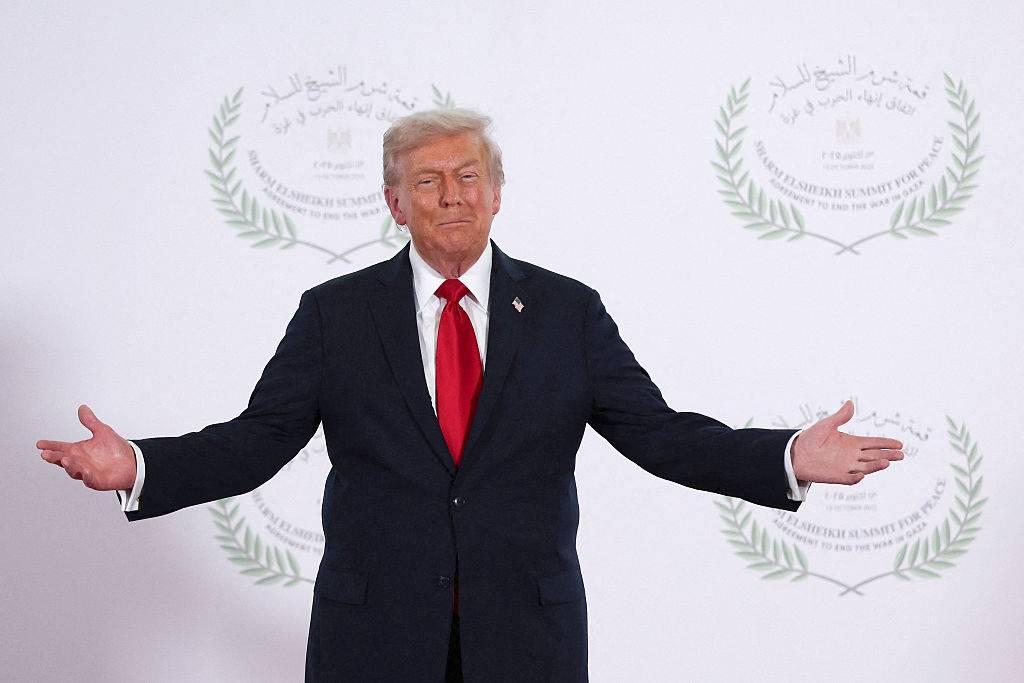This is drumming season. That’s the time of year when the woodpeckers stake out their territories by tapping out tattoos on hollow trees. Road signs or “no trespassing” edicts make an even more impressive racket. I come to Vermont to get away from Midtown Manhattan’s horns and sirens – but this time of year, it’s just a visit to the percussion section.
But the real racket isn’t from the birds declaring their sovereignty over the woods. It is from Harvard declaring its sovereignty over American higher education. In a letter dated April 14, the principals of two Washington law firms wrote a brief letter to three officials in the Trump administration telling them they need not worry about antisemitism at Harvard. The university:
has made, and will continue to make, lasting and robust structural, policy, and programmatic changes to ensure that the university is a welcoming and supportive learning environment for all students and continues to abide in all respects with federal law across its academic programs and operations, while fostering open inquiry in a pluralistic community free from intimidation and open to challenging orthodoxies, whatever the source.
The attorneys who drummed this out have mastered the persiflage. Harvard is a “welcoming and supportive environment for all students?” Sure: students who support Hamas and who hate Israel. It “continues to abide in all respects with federal law?” Including the 2023 Supreme Court decision that found Harvard guilty of racial discrimination against Asians? Harvard fosters “a pluralistic community free from intimidation and open to challenging orthodoxies?” Ask Roland Fryer about that.
Fryer is the professor of economics whom Harvard suspended in 2019 for two years without pay. He was essentially railroaded on flimsy sexual harassment charges after he published research that ran counter to “the Narrative” on police brutality. The Fryer case, in which President Claudine Gay played a significant part, stands as probably the best documented instance of how Harvard railroads those who “challenge orthodoxies,” but his is not a standalone instance.
The furor over Harvard is rooted in the way the university responded to student activists who with 24 hours of the October 7, 2023 massacre were using the Harvard campus as their stage for antisemitic diatribes. President Gay failed in the moment to quell the lawlessness or to provide support for Jewish students and faculty. Two months later, Gay was in the hotseat testifying to the House Committee on Education and the Workforce.
Representative Elise Stefanik: Dr. Gay, at Harvard, does calling for the genocide of Jews violate rules of bullying and harassment?
President Gay: It can be depending on the context.
The presidents of the University of Pennsylvania and MIT gave the same static, rehearsed answer, which testified mainly to their determination to avoid offending the anti-Israel and pro-Hamas factions on campus. Calls for their resignations commenced immediately, but in Gay’s case, Harvard’s governing board stood by her.
Within a month, however, she stepped down. She was forced out not by her insouciance over campus antisemitism but by revelations that she was a serial plagiarist.
These events were just 16 months ago, though so much has happened since they may appear in memory as coincident with the Permian extinction. Beginning with the January cascade of Executive Orders from President Trump, Harvard has faced the certainty of a reckoning. Superficially, this is a calling to account for its persistent antisemitism, but in truth the Trump administration is summoning Harvard to the table for the entirety of “wokeology.”
Harvard has spent decades compromising away its intellectual and scholarly standards. Often it has done so in an effort to impose its ideology of racial justice, but it goes well beyond that.
Larry Summers was forced out from the Harvard presidency in 2006 because he had criticized Cornel West and had mentioned in a speech that women may be less competitive in the high end of the sciences because of their “different availability of aptitude.” (Note that Summers now says that the Secretary of the Treasury should resign in light of Trump calling on the IRS to revoke Harvard’s tax-exempt status.)
The lines that cannot be crossed at Harvard are numerous. The enforcers are sometimes administrators, often faculty, and on many occasions students.
Back in 2013 an undergraduate student, Sandra Korn, made her mark in the Harvard Crimson with an op-ed saying, “Let’s give up on academic freedom in favor of justice.” The justice Ms. Korn had in mind was to drive out Professor Harvey Mansfield for endorsing “ladylike modesty.” She praised a successful student-led effort to drive off an Indian adjunct who “published hateful commentary about Muslims in India.” And she castigated Harvard for declining to endorse a “boycott Israeli academic institutions until Israel ends its occupation of Palestine.”
What stood out was Ms. Korn furor against “academic freedom,” a doctrine that she saw as protecting unworthy people and ideas. She preferred “academic justice,” which sounded suspiciously like mob rule. Poor Ms. Korn was just ahead of her time. The age of Black Lives Matter, DEI and cancel culture lay a few years yonder.
I have taken up this space with history lessons because those are the lessons we need to keep in mind while watching the showdown between Trump and Harvard. Never mind the specifics. Trump is a big picture guy. He certainly understands that Harvard is aggressively woke. In its core, Harvard disdains America. It is a pivotal institution for the global elite’s vision of world order. While perfectly willing to bask in its reputation as America’s preeminent university, Harvard views its host country as the sum of its faults: racism, sexism, settler colonialism, capitalist waste, environmental degradation, climate folly and heedless exploitation. As the remaining stalwart of Western civilization, America bears the additional onus of standing in the way of multicultural utopia.
I don’t know that you could find a single document at Harvard that lays this all out – though you might find something close to it at Harvard Divinity School. It is rather the presiding spirit of the place. It does, however, go a long way towards explaining the antisemitism. Israel is a high-functioning nation state unlike the hollowed-out states of Europe. Israel maintains pioneer outlook, it’s robustly inventive, and it rejects the postmodern doctrine that borders are both fictive and oppressive. Israel embodies a confident satisfaction in its identity, which is anathema to the post-nationalist creed.
So, if Trump were to go in search of the one idol at Harvard to which all the other idols bow, he would not go wrong in picking “anti-Zionism.” That “welcoming and supportive learning environment for all students” has a few other leaks as well. Politically conservative students and religiously observant students of several faiths can have a very hard time at Harvard, at least until they learn how to compromise themselves into conformity to the reigning ethos. An open “pluralistic community” still requires some gates.
Harvard’s decision to reject the “agreement in principle” laid out in the letter of April 11, from three Trump administration officials prompted Trump to take two actions. His administration immediately froze $2.2 billion in research funding detailed to Harvard. And Trump called on the IRS to rescind Harvard’s tax-exempt status. Were the IRS to do that, donors to Harvard would lose the tax deductions on their gifts.
A key argument in support of these actions is that if Harvard is violating Title VI of the Civil Rights Act, the administration has no legal choice. The failure of previous administrations to enforce the law is no ground for refusing to enforce it now.
Word of Harvard’s defiance of the April 11 letter spread almost instantly through higher education. Little wonder that other vulnerable colleges and universities saluted Harvard’s “leadership” on the matter. Virtually the entire apparatus of higher education’s support institutions fell into line as well. The AAUP endorse it, but so did many organizations one might think of as opponents of “wokeology.” FIRE welcomed it as a defense of academic freedom, and so too Heterodox Academy.
I am not sure whether the National Association of Scholars stands alone in supporting Trump’s position on this, but we aren’t crowded for space, and we may be provoking some of our members for whom “academic freedom” is sacred. The trouble is that Harvard, while invoking academic freedom for its resistance to Trump, is very far from upholding that principle. It is just Harvard’s flag of convenience.
The Trump administration will, I suspect, find a way to reconcile with Harvard once drumming season has run its course. I see no likelihood that really important research will wither or that vital elements of institutional autonomy will be suppressed. But important changes are needed and Trump will prevail on those. The best outcome would be for Harvard to rediscover the virtue of being a university that serves the American people by letting go of its determination to rule the world.























Leave a Reply